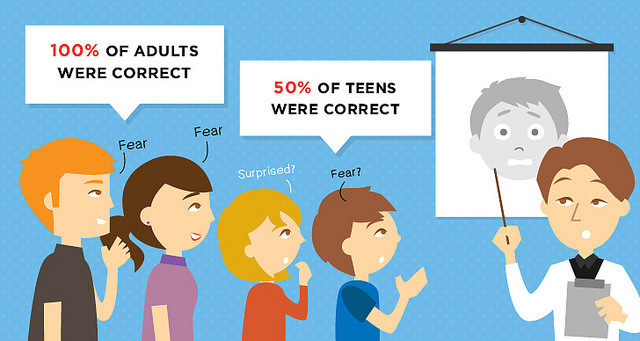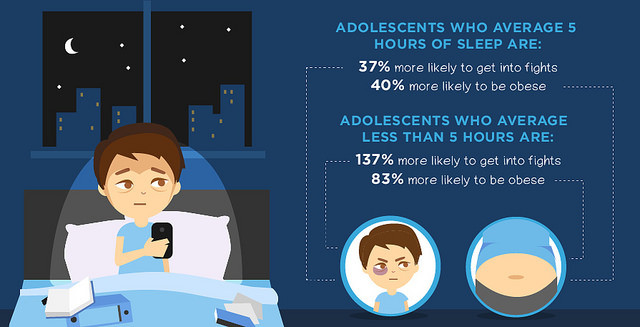You don’t know what to do.
You are wiped out, and sick and tired of being stressed out and freaking out and all the other “outs”. You have exhausted your resources, and on top of it, your hair is falling out.
Great. Middle age is everything it’s cracked up to be and more. Especially when your wild teen is on the loose.
Wild teen?
Yes, wild teen.
I’m sure you know, exhausted parent, exactly what I am talking about:
Does your child stay out all night and never tell you where they are going?
Have they gotten in any fights, verbal or physical?
Do they have an addiction to violence, alcohol, recreational or prescription drugs?
Are they falling behind in school, maybe even failing?
Are they showing signs of depression, ADHD, or self-harm?
Are they participating in illegal behavior, which can include running away from home?
Teens these days are under enormous amounts of stress and pressures. We know you are, too, but sometimes with teens it’s more than they can handle. That’s where the troubled teen part comes in.
Current research suggests that teens’ brains are indeed still maturing. Though your teen may talk and act like an adult (sometimes), the truth is, they are still rapidly developing and they will not reach full maturity until 18-25 (Dr. Hedaya, teensafe.com).
They literally process emotions much differently than adults and interpret facial expressions incorrectly more often than adults, mistaking neutral expressions for anger.
They also are not very rational in their thinking yet and tend to think in terms of what “feels good”. By this logic, at least part of your child’s poor choices can be attributed to simply engaging in behaviors seeking for pleasure, happiness or what “feels good”.
They may not be able to think through their problems and challenges to discover what would be a healthier, more long-term solution for the pain they feel.
What does all of this have to do with you?
Well, for one, it is not the end of the world for you and your troubled teen. Even if they are making reckless choices, there is hope.
There is still light at the end of the tunnel and there might be some golden nuggets of resources here for you to lighten your load and lessen the worry on your mind that is constantly knawing as you desperately wonder what to do next.
I assure you, I know, because I was once a (nearly) troubled teen, too.
It is strange to be writing an article from the perspective of how to help a troubled teen because I remember vividly what it was like to live out that nightmare;
to go from a straight-A student that had everything going for her, to struggling to scrape by with C’s; having a fairly normal social life, to withdrawing; and having my dreams die in the water with depression.
Some people might tell you it is an easy fix to go from hell to heaven- just take a pill. Just get on an antidepressant, or Ritalin, or any variation thereof. And while medications may have their place, they are not the cure-all and the fix-all….
So how do you manage to fix the crumbling facade of your life?
How do you manage to help your son or daughter in one of their greatest times of need, not to mention your own- because let’s face it- kids who are like me when I was their age may not be easy-street-parenting-kids.
You’re a good parent. You’re not “bad”, you haven’t “failed”. We invite you to deeply reflect on this list and what you might do to support your troubled teen in getting back on their feet, and your family from destructing with right along with them.
They are more than their bad choices. They are more than what is happening to them. Just as you are more than a parent with a ferocious, wild teen.
It does not negate responsibility or accountability, rather I hope to empower you with tools, ideas, and resources to help you now.
Nutrition
Did you know that many deficiencies or imbalances can account for influencing bad behavior in troubled teens?
In an article by blythedale.com, Marie Roth, registered dietitian for Eat Well, Be Well Nutrition Outreach Program, suggests 4 tips for preventing and helping to alleviate negative symptoms associated with teen depression, ADD, panic and anxiety disorders.
These disorders affect at least 14 million American teens each year (Centers for Disease Control and Prevention).
If any one of these disorders possibly exist in your child, and you see the need for medication or any other interventions for that matter, please consider nutrition as one of your first lines of defense.
Some of the things Ms. Roth recommends are Vitamin D, “the sunshine vitamin”; L-Tryptophan, which supports the production of the “happiness neurotransmitter”; and Omega-3 Fatty Acids, the tools to support your child’s optimal brain function.
All of these can be low in the diets of many young Americans, so take advantage now to boost your child’s self-esteem and ability to handle stress in life by increasing these nutrients via diet and supplementation.
I can tell you from personal experience, that this one step alone saved me from going off my own proverbial cliff and I began to turn around my downward spiral.
Sleep can also affect your teen’s vitality and behavior; their ability to focus in school and certainly their moods. In a study listed on teensafe.com, they report that teens with 5 hours or less of sleep are at significantly higher risk for fights, obesity, substance abuse, suicidal tendencies and more.
The good news?
The nutrition tips we just mentioned will help regulate their sleep patterns. If they have difficulty falling asleep, getting deep sleep, or getting up in the morning, these will help change that. Give it a month.
Physical Activity
It is well-documented that exercise can increase “happy” neurotransmitters and hormones in our body. It is well then for your child to engage in physical activity.
Can’t think of any ideas?
Sign them up for an after-school activity program that involves moving. Find a sport they can try out.
Some kids are more highly motivated by people and friends, so find out positive activities their friends are engaging in by talking to other parents and signing them up for the same things. Get them involved in something they love, make it seem more like their idea, and they will thank you for it.
One study discovered that teens who were more physically active were much less likely to experience depressive symptoms (National Institutes of Health).
A great choice would be to go to the gym or a fitness class with your child- more time together, more common activities, more time to talk and work towards a goal together will help you grow closer together. And it may help them burn off some of their pent-up steam and learn to manage their emotions.
Medication
It is important to mention medications, because most troubled teens like your son or daughter that are having problems with schoolwork, behavior issues at school, or participating in illegal activities are often considered for behavior-modifying medications.
While it may sometimes be necessary for your child to take these medications, we invite you to take advantage of all options and research and study out what may be the best medication for your child. Ask your doctor about therapeutic levels and which ones are safest for your child.
Be aware of necessary blood work and stay up to date on that. While some kids may need it, not every child will react well to them. Be aware that sometimes it takes a few different tries with different medications before you can find the right fit for your son or daughter.
Pay attention to how they feel when they are on it, not just their behavior (Journal for Child Psychology and Psychiatry).
I would also encourage you to decide what kind of treatment protocol or approach you would most want for your child, then find a few physicians, 3-5, in your insurance network to call and ask a few pre-liminary questions.
This method has saved me time and money in the past when dealing with limited time and funds and when you want to find the quickest way to the best care possible.
Counseling
Counseling is a great way to get your troubled teen help processing the confusing thoughts and feelings they are going through- and perhaps it will help them more rationally think through concepts and decisions to help control their own behavior better.
It can be a great outlet for you as a parent as well.
We know that handling a troubled teen can exhaust not only your resources, but also you and your partner as well.
Family counseling can help better support your teen. It can also help them not feel so isolated and like it’s all their problem- by counseling as a family, you can learn better communication tips, have access to structured ways to work out disagreements and conflicts, and learn better stress coping habits.
It’s a great way to help bring the family together, stop the cycle of blame, and work through the divide.
Much can be said for the social stigma of seeing a trained, professional psychologist or psychiatrist. It still exists, and though it may be a trite saying at times, it really is half the battle to admit you are having a problem in your life and need help.
I encourage you to consider the future, and all the tools you will have and the challenges you will have worked through with counseling that can help your son or daughter with the extra support they need to move forward in their life.
Sometimes, life happens; and for whatever reason we aren’t prepared to deal with it. Or because of all the many other factors going on in our lives, we simply cannot do it all on our own. You aren’t meant to, in my opinion.
And there are many qualified adults in the field, excitedly and compassionately waiting to assist you. Take advantage of their services for your troubled teen and family.
Teachers and School Administrative Officials
In general, I think many teachers and school administrative officials really care and want to help you and your child. Some schools are over-worked with many kids, but within each school there are some amazing people who have committed their lives to the mentoring role as teacher.
Sometimes, certain teachers can have immeasurable influence on your child. Perhaps reaching out to their teachers, via quick email or their phone, will help give you ideas on how to help your child.
They may even have ideas of resources within the school that might be good for your family. It might be worth it to pay your school a visit and find out more. In-person visits can sometimes let the administration know you care and are putting forth the effort to help your child. Call and schedule a visit.
I know each of us wants our children to succeed in life. If your child is struggling to maintain a C, they may need extra help with a tutor to help them get through their class(es).
You may also want to check with your school if this is available to your student. Sometimes honor students require certain numbers of hours of service and would be available to help your child for free.
There are also tutor services provided through the school in some areas. There may be local companies that specialize in teen tutor services. Whichever one you choose, even a little help can go a long way.
Please keep in mind as well that you may need to manage your expectations as a parent.
One parent I recently spoke with shared her concerns and frustrations over a child of hers that consistently struggled to attain A’s and B’s. She finally realized it was not her failing as a parent, and that doing everything “right”- meeting with teachers, and getting tutors, etc was not going to “fix” her kid- he was just not a scholarly student.
It was not the way his brain functioned and he was not interested in that direction. If that is the case, perhaps trade schools might be more motivating to your child. You’re not a failure if your child chooses a path that is not the norm, but is no less successful.
In fact, right away, they could learn skills and trades that are relevant and applicable to the job market today. It’s a win-win for everyone.
Spirituality
I know this can get a bad rap in today’s day and age, but you’re desperate, right?
Well, in a study reported in the Journal of Adolescent Health, it showed that spiritual well-being and belief in a higher power resulted in a lower risk for depressive symptoms and risky behavior.
Faith of some kind may help them have higher beliefs in themselves, as well as a greater capacity to help them deal with the problems they encounter on a daily basis.
How would you help them facilitate a greater connection?
Recently, in May 2013, a new disorder was added to the Diagnostic and Statistical Manual of Mental Health Disorders, called “Internet Use Disorder” (IUD), by the American Psychiatric Association (teensafe.com).
This, and rising video game addictions, may contribute to unnatural uses of free time with things that may be less fulfilling with excess use. Perhaps curb your child’s use of these and give them time to go outside and connect with nature daily, or do a task such as music, or art that is spiritually therapeutic and can help connect them to their higher selves.
Have them keep a journal of their spiritual experiences and have fun as a family turning off the electronics for even half an hour each day to reboot your spiritual lives.
Residential Treatment Centers For Troubled Teens
If you blew through most of these tips and still find yourself desperately seeking for more help, I would highly recommend our programs and services at Eagle Ranch Academy to assist you in bringing back the teen you once knew.
We are equipped with high ratings and proprietary practices to help you and your student reach their potential in their life.
Your child may need some more firm intervention to help get back on track. They may not communicate what they want or know how, but the results speak for themselves:
We have full-time on-site care for your son or daughter to help them get control of their lives and prevent the downward spiral from going any further. Our programs can help them take responsibility for their lives, recognize the blessings of being under your roof and care, help them learn ways to manage their stress and anger better, and help re-direct them to happier, more fulfilling lives.
Don’t underestimate the power in helping your teen daughter or son take control of their lives and finally see their potential for what it can be. You can help stop the downward spiral of your wild teen before it’s too late.
The question is, will you?
Take advantage now.









